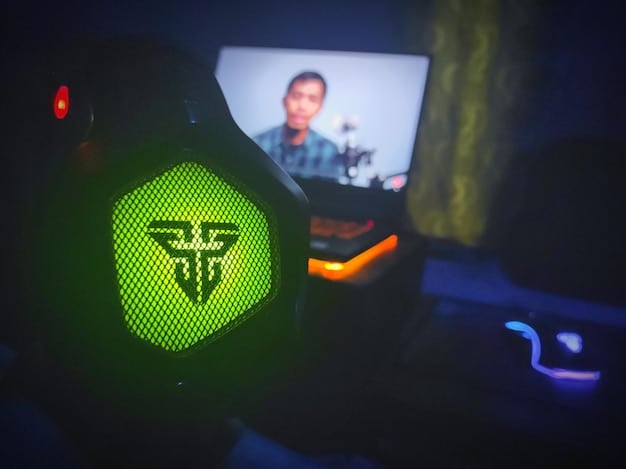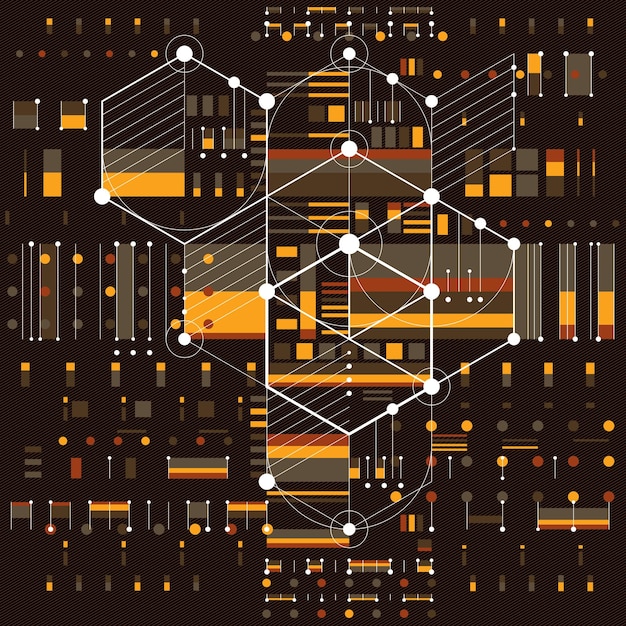Valorant Anti-Cheat: What Pro Players Need to Know Now

Pro players in Valorant must understand the recent anti-cheat updates to adapt their strategies and ensure competitive integrity, as these measures directly impact fair play and professional careers within the esports ecosystem.
In the dynamic world of esports, staying competitive isn’t just about sharp aim and strategic prowess; it’s also about understanding the evolving landscape of game integrity. For professional Valorant players, this means taking note of the latest anti-cheat measures. This detailed guide explores what every pro player needs to know about Valorant’s new anti-cheat measures, ensuring fair play and maintaining a level playing field.
Understanding the Evolution of Vanguard in Valorant
Valorant’s anti-cheat system, Vanguard, has always been at the forefront of integrity in tactical shooters. Since its inception, Riot Games has consistently invested heavily in evolving its capabilities to combat the ever-growing sophistication of cheating tools. This commitment is not merely a formality; it underpins the very foundation of competitive Valorant, where trust in fair play is paramount for both players and spectators.
The journey of Vanguard has been marked by continuous adaptation. Early iterations focused on kernel-level detection, a controversial yet highly effective approach. This deep integration allows Vanguard to monitor system processes at a fundamental level, making it exceptionally difficult for cheaters to hide their illicit software. While raising privacy concerns initially, Riot Games has worked to address these, emphasizing data security and transparency in their operations.
Key Milestones in Vanguard’s Development
Vanguard’s development trajectory showcases Riot’s proactive stance. Several significant updates have refined its detection capabilities and user experience.
- Initial Kernel Driver Implementation: Launched alongside the game, this established Vanguard’s robust foundation, immediately deterring many cheat developers.
- Enhanced Detection Algorithms: Regular updates introduce new algorithms that specifically target emerging cheat techniques, including memory manipulation and aim assist software.
- Behavioral Analysis Integration: Beyond mere signature detection, Vanguard now incorporates behavioral analysis, identifying abnormal player patterns that might indicate cheating, even if no known cheat is detected.
- Hardware ID Bans: A crucial measure that bans the hardware of persistent cheaters, making it difficult for them to return to the game even with new accounts.
The latest updates to Vanguard are designed to be even more intrusive, not in a malicious sense, but in their ability to monitor and counteract suspicious activities. This includes improved detection for sophisticated aimbots, wallhacks, and even subtle scripting tools that give a fractional unfair advantage. For pro players, understanding this evolution means recognizing that the system is growing more intelligent, capable of catching even the most discreet forms of cheating that could otherwise slip through the cracks. It reinforces the need for all players, especially those in the professional circuit, to stick strictly to fair play.
In summary, Vanguard has transitioned from a fundamental anti-cheat solution to a comprehensive security suite that continually learns and adapts. This ongoing evolution is critical for maintaining a credible esports environment, ensuring that skill and strategy, not illicit software, dictate the outcomes of matches.

The Technicalities: What’s New Under the Hood?
The recent wave of updates to Valorant’s anti-cheat system, Vanguard, introduces several significant technical advancements that professional players need to be aware of. These changes are not just incremental improvements; they represent a strategic shift towards a more proactive and deeply integrated defense against malicious third-party software.
One of the most notable changes is the enhancement of Vanguard’s real-time detection capabilities. Historically, some cheats might operate for a brief period before being flagged, allowing the cheater to gain an unfair advantage in critical moments. The new updates aim to significantly reduce this window. Vanguard is now capable of performing more frequent and rapid scans of system processes and game memory, making it harder for cheating software to establish a foothold or even execute effectively.
Advanced Detection Methods
The core of these new measures lies in refined detection methods. Riot has invested in expanding Vanguard’s “fingerprinting” capabilities, allowing it to identify subtle anomalies indicative of previously unknown or customized cheats. This includes:
- Polymorphic Cheat Signature Detection: This advanced method allows Vanguard to detect cheats that frequently change their code (polymorphic viruses), often to evade traditional signature-based detection.
- Heuristic Analysis Enhancements: Vanguard now employs more sophisticated heuristic analysis, enabling it to detect suspicious behaviors rather than just specific cheat signatures. This is crucial for catching “zero-day” exploits or highly custom cheats.
- Rootkit-like Behavior Detection: The system is better at identifying software attempting to mimic legitimate system processes or hide its presence from normal operating system functions, a common tactic for advanced cheats.
Furthermore, Riot has increased its use of machine learning algorithms to identify patterns of irregular gameplay that might suggest cheating. While not directly a ban trigger, these patterns can flag accounts for closer inspection, leading to more targeted and effective enforcement. This AI-driven approach minimizes false positives while actively learning from new cheat vectors, ensuring the system remains agile against emerging threats.
Another critical, albeit often invisible, update is the improved integration with server-side checks. Even if a cheat manages to bypass local client-side detection, the server-side algorithms can cross-reference gameplay data for inconsistencies. For instance, impossibly fast reflexes, unnatural recoil patterns, or pinpoint accuracy through smoke can be flagged, leading to a server-side ban that is often immediate and irreversible. These multi-layered defenses create a formidable barrier, diminishing the incentive for cheat developers and making the risk of detection far higher.
Understanding these technicalities is vital for pros because it underscores the comprehensive nature of Vanguard’s protection. While players aren’t expected to be anti-cheat experts, knowing that these systems run deep helps reinforce the commitment to fair play and the confidence that opponents are also under strict scrutiny, ensuring professional matches remain a test of pure skill.
Impact on Pro Players: Adaptation and Ethical Play
The introduction of enhanced anti-cheat measures in Valorant profoundly impacts professional players, necessitating swift adaptation and an unwavering commitment to ethical play. For those competing at the highest levels, these updates reinforce the need for absolute integrity, as the margin for error in avoiding detection for any illicit activity has become virtually non-existent.
Firstly, the increased sensitivity and scope of Vanguard mean that even unintended interactions with third-party software could potentially trigger flags. While false positives are rare and Riot maintains a robust appeals process, the professional landscape leaves little room for such delays or disturbances. Pro players must meticulously review all background applications, including streaming overlays, voice chat software, and even keyboard/mouse software, to ensure they do not conflict with Vanguard or simulate any prohibited actions. This vigilance is a new layer of professional discipline.
Strategic Adjustments and Mindset Shifts
The enhanced anti-cheat measures also foster a greater sense of competitive integrity within the professional scene. Knowing that the playing field is more secure allows pros to fully trust their opponents’ skills, leading to more focused and authentic gameplay. This shift can influence strategic approaches:
- Pure Skill Emphasis: Teams can now dedicate their practice entirely to refining mechanics, game sense, and strategic nuances, rather than worrying about potential cheaters eroding fair competition.
- Trust in Leaderboards: With fewer cheaters, ranked ladders and scrims become more reliable indicators of true skill, providing better practice environments and clearer paths for talent identification.
- Career Longevity: For pros, a clean game is a long game. These measures protect their careers by maintaining the sport’s credibility and the value of their achievements.
Moreover, the strengthened anti-cheat system underscores the ethical imperative for pro players. In an ecosystem where millions watch and aspire, setting an example of fair play is paramount. Any attempt to skirt the rules, even subtly, now carries a much higher risk of immediate and career-ending repercussions. This heightened risk acts as a powerful deterrent, forcing a re-evaluation of any shortcuts or perceived advantages.
Secondly, professional players and organizations often employ highly optimized setups, potentially including custom drivers or performance-enhancing configurations. While most of these are legitimate, the increased vigilance of Vanguard means pros should proactively whitelist any non-standard but legitimate software with Riot or ensure their configurations are fully compliant. Transparency and proactive communication with game developers become critical to avoid misunderstandings that could impact tournament participation or reputation.
In essence, the new anti-cheat measures are not just about banning cheaters; they are about solidifying the competitive foundation of Valorant esports. For pro players, this means adapting to a stricter environment, embracing absolute integrity, and understanding that their vigilance in maintaining a ‘clean’ system is as crucial as their in-game performance. It ensures that every victory is earned through legitimate skill and dedication, solidifying their legacy in the sport.
Proactive Steps: How Pros Can Stay Compliant
For professional Valorant players, merely adhering to the rules isn’t enough; proactive compliance is essential to navigate the stricter anti-cheat landscape without incident. With Valorant’s Vanguard becoming more aggressive in its detection, a pre-emptive approach ensures smooth gameplay and protects a player’s competitive standing and reputation.
The first and most critical step is a thorough system audit. Professional setups are often complex, involving multiple peripherals, custom software for stream management, voice communication, and performance monitoring. Players should meticulously review every piece of software running in the background while Valorant is active. This includes checking for:
- Unnecessary Background Processes: Close any applications that are not essential for gameplay or competitive broadcasting. Even seemingly innocuous programs can sometimes interfere or be misinterpreted by Vanguard.
- Outdated Drivers and Software: Ensure all hardware drivers (GPU, CPU, motherboard, peripherals) and relevant software (Windows, game launchers) are up to date. Outdated software can have vulnerabilities that cheaters exploit, and an updated system is generally more secure and recognized by anti-cheat systems.
- Macro Software: While some peripheral software allows for legitimate remapping, any in-game macro that automates actions (e.g., auto-buy scripts, complex ability combos) is strictly prohibited. Pros must ensure their peripheral software is configured only for allowed functions.
Beyond system hygiene, understanding Vanguard’s operational requirements is important. Vanguard typically runs at a kernel level, meaning it needs maximum system privileges to function effectively. Players should ensure their operating system settings do not interfere with Vanguard’s ability to run securely. This might involve disabling certain security software or firewalls if they are known to conflict, or conversely, ensuring Vanguard is whitelisted within those programs.
Another proactive measure involves regular communication channels. Riot Games often provides updates on anti-cheat refinements and sometimes offers guidelines for specific software interactions. Professional players or their organizations should actively follow Riot’s official announcements, developer blogs, and social media for any new advisories. Engaging with official support channels if a legitimate program is flagged can also save time and prevent potential competitive disruptions.
Lastly, promoting a culture of integrity within teams and the broader pro community is a powerful proactive step. Encouraging teammates to follow stringent compliance measures and openly discussing best practices helps create a unified front against cheating. When every player commits to absolute fair play, the integrity of the sport is maintained, benefiting everyone involved and solidifying Valorant’s esports ecosystem.
Dealing with False Positives and Dispute Resolution
Even with the most sophisticated anti-cheat systems, the possibility of a false positive exists, albeit rarely. For professional Valorant players, an erroneous ban or account flag can be catastrophic, potentially jeopardizing careers and reputations. Understanding Riot’s dispute resolution process and how to navigate it effectively is therefore crucial.
Riot Games acknowledges that no anti-cheat system is infallible, and they have established clear channels for players to appeal a ban or account suspension they believe was issued in error. The primary method for dispute resolution is typically through Riot’s player support system.
Steps for Disputing a Ban
If a professional player faces an unexpected ban, the key is to act swiftly and methodically:
- Remain Calm and Gather Information: Avoid immediate public outbursts. Instead, calmly gather all relevant information, including the exact error message, time of ban, and any recent system changes or software installations on the playing rig.
- Submit a Support Ticket: Head directly to Riot Games’ official support website. Select the appropriate category for “Account Appeals” or “Game Bans.” Provide as much detail as possible, explaining why the ban is believed to be a false positive.
- Provide Evidence: If possible, attach logs of your gameplay sessions (if they were being recorded), system information, or any other data that might corroborate your claim of innocence. For professional players, possessing pristine system logs and match recordings is standard practice and can be invaluable here.
- Be Patient and Transparent: The review process can take time. Avoid submitting multiple tickets or pressuring support, which can slow down the process. Be completely transparent in all communications, providing any information requested by the support staff.
Riot’s anti-cheat team will likely conduct a thorough review of the gameplay data, system logs, and Vanguard data associated with the account. This internal investigation is comprehensive and goes beyond automated detection. They look for specific patterns and indicators that distinguish between malicious software and harmless system anomalies.
For pro players, maintaining a clean system dedicated primarily to gaming is a strong preventative measure against false positives. Avoiding installing unnecessary third-party software, especially those that interact deeply with the operating system, minimizes potential conflicts with Vanguard. Similarly, ensuring a stable internet connection and robust hardware reduces the chances of lag-induced anomalies that might superficially resemble cheating.
Ultimately, while false positives are a concern, Riot’s commitment to competitive integrity extends to ensuring fair treatment for legitimate players. By understanding the dispute resolution process and maintaining impeccable system hygiene, professional Valorant players can mitigate the risks and confidently address any unforeseen issues.
The Future of Anti-Cheat in Esports and Valorant’s Role
The arms race between anti-cheat technology and cheat development is a perpetual challenge in competitive gaming. As esports continues its meteoric rise, drawing in massive investments and viewership, the integrity of competition becomes even more critical. Valorant, with its proactive and often aggressive stance on anti-cheat, is playing a significant role in shaping the future of fair play in this rapidly evolving landscape.
The trajectory for anti-cheat systems points towards increasingly sophisticated AI and machine learning integration. Current systems already use these technologies to identify behavioral anomalies, but future iterations will likely become even more predictive. This means an anti-cheat might not just react to a known cheat signature or suspicious behavior but could also anticipate and neutralize new cheat methods before they become widespread. Valorant’s Vanguard, with its kernel-level access and continuous updates, is well-positioned to leverage these advancements effectively.
Trends in Anti-Cheat Development
Several key trends are emerging that will define the next generation of anti-cheat in esports:
- Behavioral Heuristics at Scale: More widespread use of AI to analyze vast amounts of player data, identifying micro-behaviors that signal cheating, even if the cheat itself is unknown.
- Hardware-Level Protections: Closer collaboration with hardware manufacturers (CPU, GPU, motherboard) to embed more robust anti-tampering measures directly into the hardware itself.
- Cloud-Based Analysis: Shifting more of the heavy computational load for anti-cheat analysis to the cloud, allowing for more comprehensive real-time scans without impacting local system performance.
- Ethical Hacking and Red Teaming: Dedicated teams of ethical hackers working to identify vulnerabilities and develop counter-measures before they are exploited by malicious actors.
Furthermore, the future could see a move towards industry-wide collaboration on anti-cheat solutions. While many developers currently maintain their proprietary systems, the shared challenge of combating cheating might lead to more open-source initiatives or pooled resources for research and development. Valorant’s success with Vanguard could serve as a model for other titles, demonstrating that a strong anti-cheat is not just a technical necessity but a critical component of a healthy esports ecosystem.

Another fascinating area is the potential integration of blockchain technology for maintaining immutable records of game integrity, although this is still largely theoretical. Imagine match results and player actions being recorded on a decentralized ledger, making it virtually impossible to tamper with past records or dispute legitimate bans.
Valorant’s ongoing commitment to a robust anti-cheat system underscores a broader industry recognition: the long-term viability and growth of esports depend directly on competitive integrity. By continually investing in Vanguard and openly communicating about its capabilities, Riot is not just protecting its game but contributing to a higher standard of fair play across the entire esports landscape. This dedication ensures that the true spirit of competition—where skill triumphs—remains at the heart of professional gaming.
The Broader Implications: Integrity, Trust, and Professionalism
Beyond the technical intricacies of detection, the enhanced anti-cheat measures in Valorant carry significant broader implications for the esports ecosystem, particularly concerning integrity, trust, and professionalism. These updates are a clear statement from Riot Games: fair play is non-negotiable, and its enforcement is a driving force behind the continued growth and credibility of competitive Valorant.
Integrity forms the bedrock of any legitimate sport, and esports is no exception. When players, teams, and fans have confidence that matches are played fairly and that outcomes are decided purely by skill and strategy, the sport flourishes. Cheating, conversely, erodes this confidence, alienates audiences, discourages legitimate talent, and ultimately devalues the entire competitive scene. Vanguard’s aggressive posture signals Riot’s strong commitment to preserving this fundamental integrity, ensuring that Valorant remains a respected and legitimate esports title.
This commitment directly fosters trust. For professional players, trust in the system means they can dedicate thousands of hours to practice, confident that their hard work won’t be undone by an opponent using illicit software. For organizations, it means they can invest in rosters and infrastructure, secure in the knowledge that their valuable assets are competing on a level playing field. And for broadcasters and sponsors, it provides assurance that the product they are showcasing or supporting is authentic and worthy of their investment. This multi-faceted trust is vital for sustained growth and engagement in the esports industry.
The professional implications are profound. With tighter anti-cheat measures, the standard for professionalism among players rises. It’s no longer just about optimizing aim or executing strategies; it’s also about maintaining a rigorously clean system, understanding the nuances of anti-cheat compliance, and embodying the spirit of fair competition. This includes:
- Enhanced Reputation: Teams and players known for their strict adherence to integrity gain stronger reputations, attracting better sponsorships and fan loyalty.
- Fairer Compensation: A clean competitive environment ensures that financial rewards and career opportunities are distributed based on true merit, not dishonesty.
- Role Modeling: Professional players serve as role models. Their unwavering commitment to fair play, enforced by robust anti-cheat, sets a positive example for the millions of aspiring amateur players.
Furthermore, the discussions around anti-cheat updates, including the necessary trade-offs between system invasiveness and security, contribute to a maturing dialogue within the esports community. It educates players and fans about the complexities of maintaining game integrity and fosters a shared responsibility in upholding ethical standards. Valorant’s ongoing efforts demonstrate that a stringent anti-cheat solution is not just a reactive measure against bad actors, but a proactive investment in the long-term health, growth, and professionalism of its global esports ecosystem.
| Key Point | Brief Description |
|---|---|
| 🛡️ Vanguard’s Evolution | Continuous updates improve AI-driven detection, behavioral analysis, and kernel-level monitoring for advanced cheat prevention. |
| ⚙️ Technical Advancements | Real-time scanning, polymorphic signature detection, and enhanced server-side verification make evasion harder. |
| 🎮 Pro Player Impact | Requires diligent system management, adherence to ethical play, and fostering trust in competitive integrity. |
| 🚨 Dispute Resolution | Clear processes via Riot Support for appealing false positives; proactive system hygiene minimizes risks. |
Frequently Asked Questions About Valorant Anti-Cheat
▼
Vanguard is Valorant’s proprietary anti-cheat system. It operates at the kernel-level (the core of your operating system) to gain deep system access. This allows it to detect sophisticated cheating methods that run below typical user-level applications, making it highly effective against advanced cheats that attempt to hide from detection.
▼
Riot Games consistently optimizes Vanguard to minimize performance impact. While it runs in the background, updates are designed to be efficient. Minor impacts might occur during scan cycles, but significant performance drops are rare and typically addressed by patches. Professional players should ensure their systems meet recommended specs for optimal experience.
▼
Generally, no. Common and legitimate third-party software like Discord for communication or OBS for streaming are not designed to interfere with game integrity and are typically whitelisted by Vanguard. However, always download software from official sources and ensure no hidden features or plugins might inadvertently trigger anti-cheat.
▼
If you believe you’ve been unfairly banned, immediately submit a support ticket to Riot Games through their official website. Provide detailed information about your case, including any relevant dates, times, and a clear explanation of why you think the ban is incorrect. Riot reviews appeals thoroughly, so patience is key.
▼
Pro players should regularly audit their systems for unnecessary background software, keep all drivers and operating systems updated, and avoid using any non-approved third-party tools. Staying informed via official Riot channels and communicating proactively with game developers if unusual software interactions occur are also crucial steps for compliance.
Conclusion
The latest enhancements to Valorant’s anti-cheat system, Vanguard, mark a significant step forward in securing the integrity of competitive play. For professional players, these measures underscore the paramount importance of fair conduct and meticulous system management. While the technical sophistication of anti-cheat continues to evolve, the core message remains clear: a truly competitive environment thrives on trust and ethical engagement. By understanding, adapting to, and respecting these new protocols, pro players not only protect their careers but also contribute significantly to the enduring credibility and vibrant future of Valorant esports.



![Mastering [your chosen topic] in PC Gaming: A Deep Dive Mastering [your chosen topic] in PC Gaming: A Deep Dive - Cover Image](https://arcanenews.com/wp-content/uploads/2025/07/arcanenews.com_11_1753889991_8be9b385_cover-360x180.jpg)

